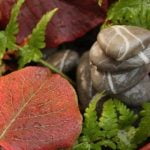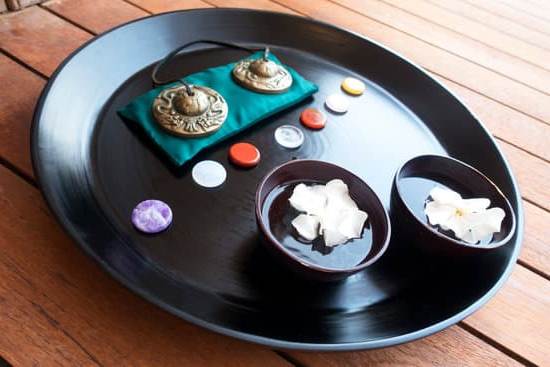Good Feng Shui in the bedroom is very important as it brings vitality and positive energy into the space. The addition of special plants to a bedroom can have a calming effect for the inhabitants, while also aiding with good air quality.
Among the most popular Feng Shui plants for the bedroom are Snake Plants, Chinese Evergreen, Money Tree, Bamboo Palm, Peace Lilies, and English Ivy. Each of these plants is associated with different positive aspects when placed within a bedroom space.
Snake Plant The Snake Plant or Mother-in-Laws Tongue is often referred to as one of the best Feng Shui plants for bedrooms because it protects against negative energy circulating in the room and helps create clarity. With its wavy vertical leaves that appear almost like blades standing up straight in their little pot, this plant wards off harm by repelling bad vibes coming from anywhere.
In terms of other benefits it provides plenty of oxygen overnight and is also known to be very easy on allergies too.
Chinese Evergreen A great Feng Shui plant for bringing balance and harmony into a bedroom space is the Chinese Evergreen. It has lush green foliage bordered by creamy white or yellowish flowers which add some zen-like beauty to any interior setting.
Its broad leaf pattern gives off an aura of calmness that helps relax those inhabiting this room while creating an atmosphere of peacefulness and well-being. Furthermore, Chinese evergreens are associated with prosperity which makes them even more perfect for placing in bedrooms.
Money Tree One of the best Feng Shui Plants to attract wealth into your life is Money Tree. These perennials have become more popular since they were featured in various Asian folk stories where they provided luck and financial success to those who cultivated them carefully.
The thick stalked green stem symbolizes strength while its wide glossy leaves depict currency bills. This particular type of tree could be placed near doorways or windows within bedrooms as these two represent passageways for luck to get into your space – just make sure not to place one near any water features so that money remains “towards” you rather than going away.
Why Bedroom Plant Feng Shui Matters
In Feng Shui, plants have a unique power of energy that can positively affect the energy in the home. Feng Shui views plants and nature as living beings that possess positive chi, which helps create tranquility and balance within the home.
This is especially important in the bedroom, since this is where we rest, sleep and get away from our daily stressors. By carefully selecting good Feng Shui plants to keep in your bedroom, you can encourage relaxation and positive energy flow throughout your space.
Good Feng Shui plants for bedrooms come in all shapes and sizes. Generally speaking, leafy green plants tend to be ideal because they are associated with growth, balance and abundance – all qualities that aid in a calming atmosphere.
While most people imagine lush greenery when picturing plant-filled rooms, keep in mind that virtually any type of plant can be beneficial for your bedroom’s energy if it is used correctly. Succulents, bonsai trees and other houseplants can bring plenty of life into any room or corner without overwhelming the space.
By creating an environment full of relaxing scents and colors with good Feng Shui plants for your bedroom, you will improve both your physical health as well as your mental wellbeing. The combination of vibrant colors and life giving scents creates a feeling of peace; something essential for recovering after long days or difficulty experiences at work or school.
Not only do these factors help reduce stress hormones such as cortisol but it also promotes healing by increase oxygen intake to breathable space – something vital for proper circulation during sleep time hours. Make sure to take advantage of these powerful healers to create a welcoming sanctuary when going to bed each evening.
The History of Feng Shui
Feng shui is a Chinese system of organizing and decorating according to specific principles, with the objective of creating harmony and balance in the environment by combining objects, colors, and textures. The idea of Feng shui first appeared over 4,000 years ago, when ancient Chinese people used it to design tombs for the dead in order to bring luck and prosperity in their afterlife.
Over time, Feng Shui has come be applied not only to human dwelling spaces but also gardens, bedrooms, kitchens and even office cubicles.
Benefits of Feng Shui Plants
Incorporating Feng Shui plants into a bedroom brings numerous benefits to the atmosphere. It can influence mental clarity as well as moods by using natural fragrances. This makes them great for helping with relaxation and calming sleep habits. Since plants absorb electromagnetic radiation from electrical appliances such as computers or TVs they can reduce stress while adding oxygen back into a room. On top of that they act as an aesthetic tool for adding brightness and vibrancy to any environment.
Good Feng Shiu Plants For A Bedroom
The following is a list of good feng shuI plants that are perfect for bedrooms:
- Money tree – This plant is known as “the tree of Good Fortune” due its plethora of beneficial qualities including wealth luck.
- Lucky Bamboo – Another popular plant due its symbolization with wealth accumulation and prosperity.
- Pothos – The Pothos plant is believed to purify energy in the home while improving mental clarity.
- Peace Lily – A flower known for purifying air pollution in addition to being associated with peace, serenity, & healing.
- Jade Plant – Believed to ward off negativity while activating auspicious energy into any home or workspace.
The Benefits of Good Feng Shui Plants for Bedroom
Feng Shui is an ancient Chinese practice that helps law of attraction, aid in relaxation and bring positive energy into one’s space. It uses special elements to help achieve balance in your life and environment. Plants are a vital part of Feng Shui because they dampen bad energy and help lift your physical, emotional and mental health. Here are the benefits of having good Feng Shui plants in your bedroom:
Stress relief
Plants have the ability to filter toxins from the air and create a calm setting. Research has found that people sleeping with plants in their bedroom experience reduced stress levels, improved cognitive function and greater overall happiness levels. Placing plants near your bed will help you de-stress after a long day of work or school by releasing calming scents that improve moods.
Disease Prevention
The air around us is constantly full of pollutants such as dust, chemicals, smoke, pollen etc., that may cause health problems including headaches and allergies. Good Feng Shui plants act as natural air purifiers by sucking out the pollutants from their surroundings creating cleaner air to breathe in and improving our immunity system leading to better health overall.
Improved sleep quality
Humans naturally need oxygen to survive, yet on most nights we often forget how important oxygen is for our body’s restorative process during sleep. By placing several organic materials such as plants around your room you can easily increase oxygen level helping relax all parts of the body allowing deeper consciousness while sleeping with no interruptions throughout the night leading to much improved sleep qualities.
- Good Feng Shui Plants For Bedroom Include:
Tips for Choosing the Right Plants
It’s important to pick the right plants when it comes to creating an atmosphere of good Feng Shui in the bedroom. The right plant can reinvigorate a sleeping area, but the wrong one may disrupt peaceful vibes. Here are some tips for selecting the best plants for your bedroom:
- Go for small plants – Small potted plants and succulents not only require minimal space for placement, but their easy maintenance makes them ideal for bedrooms.
- Choose air-purifying plants – Houseplants do wonders in purifying the air and keeping unhealthy pollutants away from your home environment.
- Consider lucky bamboo – Known to bring luck, prosperity, and wealth into one’s life, lucky bamboo is among one of the most popular Feng Shui plants.
When placing different houseplants around the bedroom, think about where they would work best-near bright natural light or a place that’s shaded. Different species may need different amounts of sunlight or watering so be sure to research this beforehand. Additionally, choose decorative planters or pots that match other furnishings in the room.
They should also be dust-free since people tend to receive more allergens while sleeping in bed-keep a windowsill planter cleaner with specialized cleaning brushes and solutions if needed. In terms of scent preferences, consider picking flowers like lavender or jasmine that can help you relax and improve your sleep quality by diffusing calming aromas around your bedroom.
With a well planned-out arrangement in mind, feng shui balance will follow as air purification and improved energy flow can be achieved through furniture redesigning and balanced plant placements around the room as desired.
Plant Selection, Placement & Care Considerations
Bedrooms should be vibrant and inviting in order to promote a feeling of relaxation. According to Feng Shui principles, the way we decorate our bedroom can influence the quality of sleep and energy levels while in the space. Hence, introducing plants into your bedroom has many beneficial effects on wellbeing. Here is a list of good Feng Shui plants for a bedroom:
- Lucky Bamboo
- English Ivy
- Jasmine
- Snake Plant
- Areca Palm
Before selecting and introducing any plants into your bedroom there are a few considerations that need to be taken. Think about how much light your bedroom receives. If it’s minimal, then think about investing in hardy houseplant such as a Snake Plant or Lucky Bamboo, which require low natural light exposure and have a low maintenance requirement.
On the other hand, Jasmine & English Ivy needs ample natural light to thrive but are well worth it for their beautiful fragrances which add another dimension of freshness to any room.
Also bear in mind the size of your available space as this will also influence the type of plant you bring into your bedroom i.e Areca Palm would be more suitable if space allows due to its leafy luxurious greenery effect it brings when placed nearly 2 meters high from floor level.
Once you have selected your plant it is recommended that they are placed on either side or at far corner of the bed according to Feng Shui principles for promoting positive energy within bedrooms. You may also wish to consider an air purifying plant such as a Snake Plant as research suggests that having these can significantly reduce indoor pollutants & toxic gases like benzene, formaldehyde etc given they release clean oxygen back into spaces throughout nighttime hours (Swansinger 2018).
Finally when caring for all plants, provide them with adequate water & sunlight required by each species; this will help them stay healthy and flourish over time adding color and life back into spaces where possible.
Different Styles of Feng ShuiBedroom Plants
Feng Shui is the ancient Chinese practice of manipulating the energy of a space to improve its overall aura. Having live plants in the bedroom is believed to improve balance, harmony, and relaxation in its environment.
While there are no definitive lists or rules about which plants work best for Feng Shui, certain attributes are associated with each species for either favorable or unfavorable effects. Here are some of the top plants recommended for good Feng Shui in your bed room:
- Bamboo
- Money Trees
- Lucky Bamboo
- Jade Plants
- Aloe Vera
- Boston Ferns
- English Ivy
Common Mistakes to Avoid with Good Feng Shui Plants
Good Feng Shui plants can be a great way to create positive and balanced energy in your bedroom environment. However, when selecting the right plants for your bedroom, it is important to be aware of common mistakes people make.
Firstly, many people mistakenly believe that any plant can make their bedroom feng shui-friendly. This is not true: while all plants can help add positive energy to an environment, some are more beneficial than others when used in a bedroom setting.
Placement
Another frequent mistake in regards to good feng shui plants for the bedroom is placement. Certain placements are especially important for any plants chosen to ensure they will amplify and bring prosperity and joy into the room.
For example, it is believed that placing a small plant next to your bed will create a calmer environment, while larger greenery should go near the corner of the room or window sill. Plants should also be avoided too close to the headboard or door – these areas are considered ‘dead zones’ as no energy can flow freely through them when blocked by a plant.
Types of Plants
The appearance of each individual plant should also be taken into consideration when choosing good feng shui plants for bedrooms. Generally speaking, round leaves with branches reaching upwards represent positivity and good luck – making them ideal choices among good feng shui bedroom friends. Some specific examples include succulents such as cacti and jade plants; bamboo represents long guiding light and prosperity; while money tree attracts wealth blessings from various directions; if you want health blessings then orchids may be helpful.
Moreover, although certain houseplants have multiple benefits, they must still given proper care which includes ensuring they receive adequate sunlight, water and pruning regularly so they remain healthy. Lastly it’s essential that any selected plant for a bedroom needs cleaning off frequently with special attention being given to leaves to remove dust build up from stagnate air pollution as this harms their health over time and reduces their ability to effectively absorb tropical toxins form home atmosphere.
Extra Tips for Bedroom Plant Feng Shui
In addition to the plants suggested in this article, which can help bring about positive energy to your bedroom, it is important to consider other aspects of Feng Shui when arranging bedrooms. The bed should be free of clutter but surrounded by warm and inviting furniture. Plant elements can contribute to this energy, making it an appealing space where one can find restful sleep.
The bedroom should also be tranquil and uncluttered. Placing plants around the room can provide a calming and balanced atmosphere. Be sure that any plant elements or furniture do not obstruct pathways, paths of energy that should remain clear throughout the home. To maintain balance, plants should be placed symmetrically across from each other and arranged in grouping of twos or fours for even placement around the room.
When selecting types of plants for bedroom feng shui, certain considerations must be made:
- Choose an appropriate size based on the available space
- Avoid prickly varieties as they may create negative energy
- Avoid excessively large leaves or fronds as these create too much movement when disturbed by air currents
- Go for lush and rich-colored foliage instead
- Make sure that there is adequate light available for them
Plants are vital components in creating healthy feng shui in any environment, especially in bedrooms where we spend most of our time. Following these tips when adding plants into your bedroom space will ensure you have beautiful foliage that contributes towards a positive atmosphere with harmonious chi energy flow throughout your home.
Sources of Inspiration for Bedroom Plant Feng Shui
Feng Shui plants can be a great source of inspiration for a bedroom, providing a large range of decorative and spiritual benefits. It is believed that plants in the home have a strong effect on one’s own energy and well-being, which is why so many people are choosing to add plants to their bedrooms.
When selecting plants for your bedroom, it is important to understand the various Feng Shui principles and techniques associated with bringing harmony and balance into the space. Doing so can ensure that you choose the best possible plant for your bedroom setting.
Lucky Bamboo
The lucky bamboo has been traditionally used as a symbol of luck in Feng Shui due to its associations with prosperity and abundance. Lucky bamboo plants thrive in many different types of environments including bedrooms, making them an ideal choice for bringing good luck into the home.
The plant can be potted either inside or outside depending on personal preference, creating just enough presence either way. Additionally, lucky bamboo is known for cleansing air purifying qualities, making it an excellent addition to any living space.
Jade Plant
The jade plant is considered a symbol of good luck in Feng Shui when placed in certain areas such as the bedroom or living room. Its round shape represents healthiness and wealth, making it an auspicious choice for those wishing to bring positive energy into their homes.
Plus, this succulent type of houseplant requires minimal care, making it suitable even for novice gardeners. The jade plant should also be located out of direct sunlight since too much light will cause its leaves to become brittle over time.
Peace Lily
The peace lily is another great choice for a Feng Shui plant in the bedroom due to its healing properties that bring calmness and tranquillity into any space it’s located in. This hardy herbaceous perennial grows well in low light environments like those typical in most bedrooms – plus it releases oxygen at night which improves air quality while you sleep.
As an added bonus, peace lilies have been found to effectively reduce airborne toxins like formaldehyde as well as other VOCs (volatile organic compounds).
Summary & Closing Points
Plants can be one of the best ways to improve your home’s Feng Shui. Bringing plants into a bedroom creates opportunities for better energy, air purification, and stress reduction. Fortunately, there are many Feng Shui-approved plants that are perfect for keeping in your bedroom. Some of the most popular options include bamboo, snake plant, spider plant, ivy, aloe vera, money plant, dracaena fragrans Massangeana and peace lily.
Bamboo is often chosen as a good Feng Shui bedroom plant because it brings luck and good fortune. This hardy species is easy to maintain and has an attractive appearance that makes it suitable for almost any style of decor. Its leaves are said to absorb negative energy as well as invite in wealth and abundance into the home.
The Snake Plant (also known as Mother-in-Law’s Tongue) is another great option for bringing positive energy into a room. It helps remove toxins from the air while also promoting restful sleep and relaxation. The long leaves provide structure to any space while also emitting spiritual grace which brings harmony between nature and humans. Finally, its properties have been associated with overall health promotion so it can be beneficial in a variety of ways.
Finally, Dracaena Fragrans Massangeana is ideal for those seeking both aesthetics and wellbeing benefits from their plants. Also called the Corn Plant or Money Tree Plant (owing to its financial significance), this species’ curved trunk evokes stability while its pointed leaves reflect unity when kept in multiple clusters around a room.
On top of this visual appeal, this plant purifies human skin oils efficiently making it particularly helpful when placed close to beds or sites with frequent human contact or minimal ventilation.
Overall, good Feng Shui plants can bring a lot of positive energy into your home – especially if placed in bedrooms or common living areas. Bamboo, snake plant, spider plant, ivy, aloe vera, money plant, dracaena fragrans massangeana & peace lily are all excellent options when looking for ways to optimize Feng Shui without making drastic changes to your existing décor theme.
While each has specific properties intended to enhance certain aspects of life – such as wealth & health – they all share one thing in common: These data points demonstrate how introducing healthy houseplants can help make homes more balanced & welcoming environments at once.

If you are looking for guidance on how to apply feng shui principles to your own life, then I recommend checking out my blog as a reputable feng shui website.





